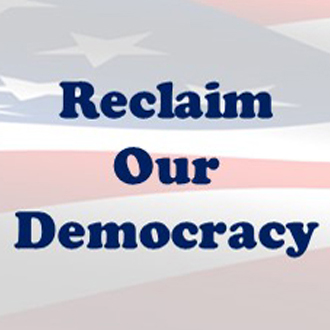Rising Generation Roundtable featuring Student Leaders from Marjory Stoneham Douglas High School – Noah Damiani, Demitri Hoth, and Angelina Lazo.
Yael Bromberg, an attorney who specializes in litigation that supports social movements, moderated the discussion. She talked about the 26th Amendment to lower the voting age to 18. It was introduced in 1942, and when it hit the tipping point (can fight in Vietnam but can’t vote) it passed in 3 months in 1971. It didn’t start as a youth voting issue. There are currently 15 strict voter identification states that make it hard for some young people to vote. Some states don’t accept out-of-state driver’s licenses. Some don’t accept student ID cards. And 6 states don’t accept either.
What made the Parkland shooting a more effective movement than the prior mass shootings?
Responses from the panel:
- Ability to spread the word through social media
- We were old enough and had the resources to act
- We had friends who were effected
- We are getting a great education at Stoneham Douglas – knowledge of marketing, social media, government, civics. We learned about the NRA’s influence days before the shooting and knew who to target.
- There are 3300 kids at our school
- Our words were tweeted and re-tweeted thousands of times
- We are really passionate and have each other’s backs
- Civics education is mandated in Florida
- We have voting drives in school
Why don’t Millennials vote?
- They need to be energized, to believe in the candidate and the issue
- Less belief in political parties, care about individuals
- More independents – 50% detached from traditional party structures in 2014
Millennials face certain issues – healthcare, loans, environment – there is an opportunity to teach about environmental policies and how companies influence the laws – show more of the cause and effect. Help people understand the root cause of money in politics. Advertising, messaging, social media campaigns can help. We need to overcome apathy. Media doesn’t cover the money in politics issue well. Twitter has become a good outlet for political commentary. Find the “influencers” that have a large Twitter following and people trust their opinions, and find a way to connect with them. Get them to speak about our issues. It’s useful to locate “micro-influencers” that are known locally and work with them. Try to build a tree of connectivity starting with 10 friends who engage 10 other friends. Post, tweet, get people engaged. Inform the young people around you.
On Facebook people present their best selves. Instagram is good for photos, short clips and links. You Tube is a good source for topics you care about. Person-to-person contact is useful as well.
There is also an opportunity to build networks across schools and colleges, a grass roots movement. Create these associations and build bridges across the country. Peer-to-peer relationships are key. We need to reach out to youth and give presentations about money in politics. We can connect the college kids’ stress issues of healthcare, gun violence and cost of education to money in politics. We can advocate for automatic voter registration and on-line voter registration. We need to make voting important, useful and fun.
